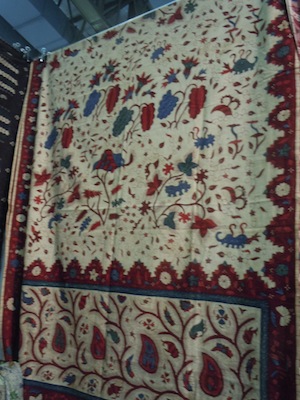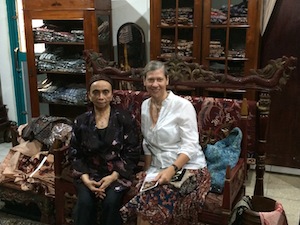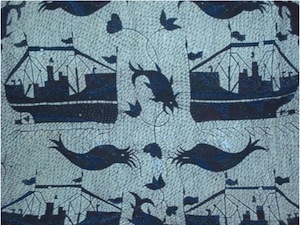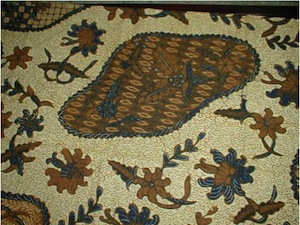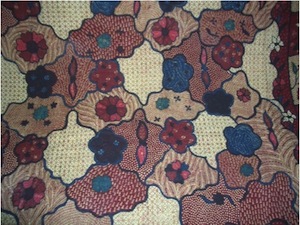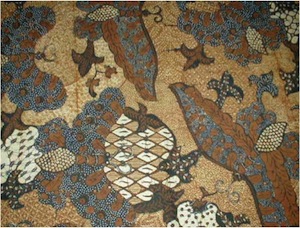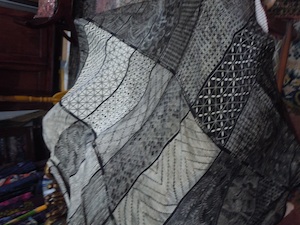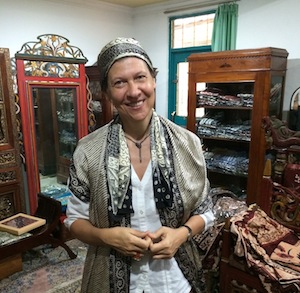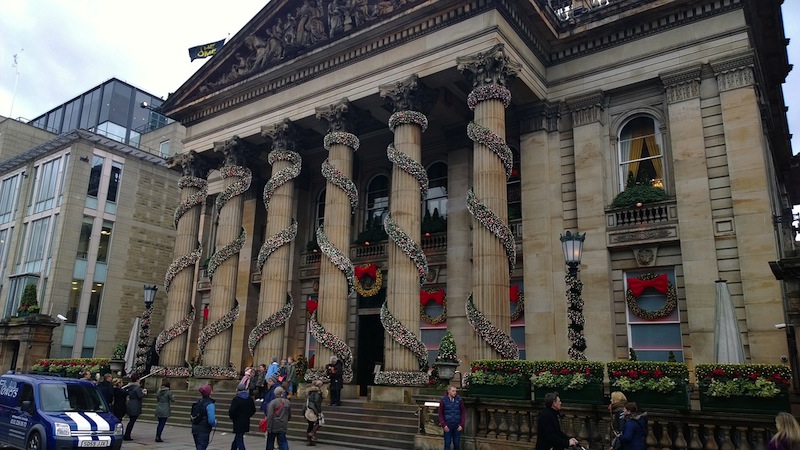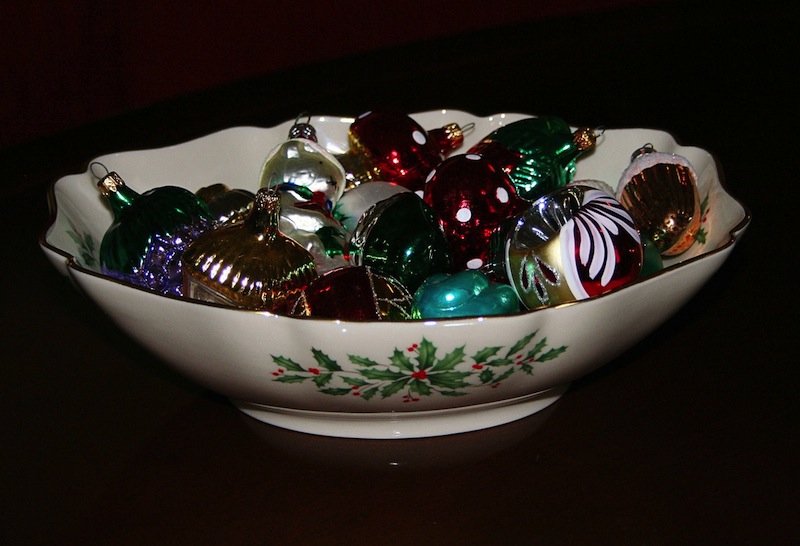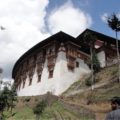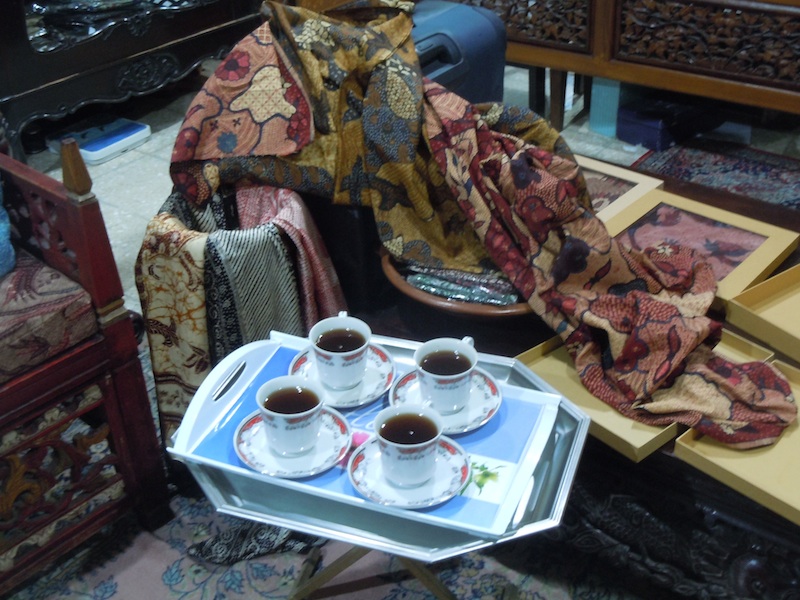
Claudiaexpat shares another beautiful encounter in Jakarta.
Hasnan is an elderly Indonesian lady who creates and sells traditional batik. I met her at the Christmas Bazaar of the American Women Association of Jakarta. My friend Ida (whom I met thanks to Expatclic) and I were about to leave the immense hall when we were attracted by some scarves and shawls with a very particular design, and definitely elegant.
The stand sold batiks from Madura Island, and it did not take me long to understand that we had come across something different, and of high quality. Hasnan and I hit it off immediately. She is a fragile, elegant and unassuming woman, who talks passionately about “her” batiks and how despite working as an intercultural mediator for UNESCO, she maintains her business of trading batiks of the island of her birth. She teaches young people how to use original motifs, occasionally mixing them with other elements, so as to create new and original designs.
I went to see her at her home, where she has her workshop, and it was fascinating. I immediately spotted the batik I had seen (and fallen in love with) at the bazaar, an antique piece made by a Dutch woman who used to live here at the time of colonization. Look at how wonderful it is:
Hasnan has a large collection of antique batiks. However, the strong point of her production is linked to her island, Madura. Over a cup of tea served with traditional food, Hasnan shared a lot of information, starting from the different techniques to make batiks. One is called batik tulis, and uses a canting, which is a tool similar to a pen, to apply hot wax onto the material. The other one is called batik cap, and involves a copper stamp with a pattern, which is applied onto the piece of cloth. The first technique is more laborious, as the pattern has to be to be drawn directly onto the material, while with batik cap the pattern is created on the stamp, and repeated on the material until the whole cloth is covered. “The art of batik”, Hasnan told me, “does not only consist of technical accuracy, but requires a series of skills that go from communication to entrepreneurship, from creativity to innovation”.
Madura is an Indonesian island off the north-east coast of Java. It is home to 4 million inhabitants, and its traditional batiks are spectacular. Their main motifs are taken from plants and animals, on different backgrounds: there are shrimps, fish, birds, and images taken from antique drawings from foreign countries. Backgrounds can vary within a single batik, thus increasing the feeling of mobility and creativity. Traditional colours of Madurese batiks are brown, red and blue in all their nuances.
In 1980 Hasnan started working with textile designers to create simpler batiks but maintaining the original motifs. She did some intensive research and discovered at least 45 different backgrounds used in Madurese batiks. With batik makers from Pamekasan, on Madura, she started from these 45 backgrounds to create her personal collection of black and white scarves. In 2001 she won the UNESCO Seal of Excellence in Handicraft for an innovative black and white design which combined four different traditional backgrounds.
From the ’80s until today Hasnan has never stopped experimenting and introducing new ideas in her batiks: she mixes motifs and backgrounds creatively, and widens the range of colours, introducing in particular white and black. She also explores new materials, moving from traditional cotton to silk, organdie and woven material. Moreover, while the original Madurese batik was used as a sarong or kain (a longer version of sarong), Hasnan introduces more products like shawls, tablecloths, skirts and bedcovers, and matches sarongs and kains with scarves.
Today Hasnan’s batiks are popular and in high demand by prominent women (wives of top politicians) and very expensive. She has not lost her simplicity, though. She offered us a delightful welcome, opening the doors of her workshop and home to us, giving us time and answering all our questions.
Hasnan’s workshop is in Jl. Pedati 11, Jatinegara, Jakarta. Call her for an appointment at 021 8193479 or 0818154227.
Claudia Landini (Claudiaexpat)
Jakarta, Indonesia
January 2015
Foto ©ClaudiaLandini

